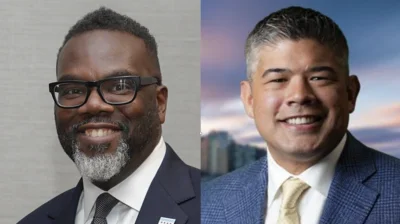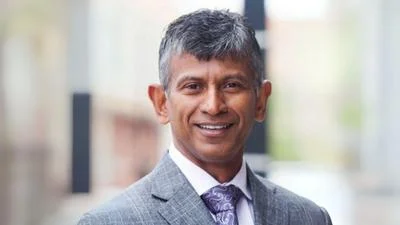Brandon Johnson Mayor | Chicago Contrarian
Brandon Johnson Mayor | Chicago Contrarian
The upcoming 2026 election cycle in Illinois is set to bring significant changes, with several high-profile political seats becoming available. Senator Richard Durbin’s decision not to seek re-election after five terms has opened the field for new candidates. In addition, four congressional seats are contested, Governor J.B. Pritzker is pursuing a third term with Christian Mitchell as his running mate, and Representative Margaret Croke is expected to run for statewide office as comptroller.
While most of the state’s key races will be decided by the March Democratic primary, Chicago’s election for president of the Board of Education will take place later in November 2026. This marks the first time voters citywide will elect a president for the Chicago Public Schools (CPS) Board of Education.
Chicago Contrarian commissioned a poll through M3 Strategies from July 24-26 to assess public opinion on this important race. The poll focused on potential candidates and measured attitudes toward various groups involved in CPS governance amid ongoing budget challenges.
According to the poll memo, out of eight possible contenders for School Board president, only three received more than 10 percent support: Arnie Rivera, former McPier Chief Equity Officer and Rahm Emanuel associate (23.4 percent); Jennifer Custer, current Northwest Side Board Member and critic of Mayor Brandon Johnson (20.4 percent); and Aaron “Jitu” Brown, West Side Board member known for his involvement in the Dyett Hunger Strike (13 percent).
The survey also examined why certain individuals and groups were selected as subjects. It aimed to highlight voter concerns about an often-overlooked election that will have broad influence over public education in Chicago. The report noted differing approaches among stakeholders regarding how best to address CPS’s challenges.
Key interest groups identified include the Chicago Teachers Union (CTU) and related labor organizations concerned with working conditions, wages, and pensions; business associations interested in school reform and economic growth; and elected officials who see schools as central to their communities’ well-being.
“First and most notably, the Chicago Teachers Union and its allies are concerned with schools for obvious reasons: Working conditions, wages, and pensions. In addition to the CTU, other local unions associated with CPS have an interest for similar reasons or often because CTU has been poaching their members. Naturally, the Chicago Federation of Labor, the umbrella organization under which the CTU rests, makes an appearance in our poll.”
Business interests have historically spent heavily on these elections but have seen mixed results against union-backed candidates.
“Business groups, the civic-minded, and school choice advocates often share overlapping interests regarding our schools. They see what many voters see: A bloated bureaucracy which is largely failing our children and as businesspeople, they believe they can fix it. Second, they know an educated workforce is essential for economic development and driving growth. Third, less admirably, saving money in taxes and landing contracts from the district is also a matter we took into consideration.”
Elected officials at all levels are expected to play a role due to schools’ importance within their constituencies.
“Finally, there exists a third group: Other elected officials. From Washington D.C. to City Hall, schools are the backbones of communities — and those communities elect their leaders.”
The survey found that both Mayor Brandon Johnson and CTU elicit skepticism among voters. There was also concern about wealthy donors’ influence on elections—respondents were less likely by a 60 percent margin to support candidates funded by affluent individuals or organizations such as Common Ground or Leadership for a Better Chicago.
“In a surprise revelation... respondents expressed a distaste with an election in which the affluent exercise an undue influence... by a 60 percent margin, voters are less likely to vote for a candidate funded by a member of the privileged class.”
Despite negative views toward some citywide figures and donor groups, respondents generally viewed their aldermen favorably—especially those who focus on ward-level issues—and trusted local unions along with organizations like the Chicago Federation of Labor.
“It is worthwhile to mention respondents were most pleased with aldermen who concentrated mainly on ward work: Fulfilling 311 requests such as providing garbage cans...”
Support was also found for school choice initiatives among surveyed residents.
“One outcome of the poll Contrarian found worth highlighting specifically is the only real issue-based question: The presence of Chicago Police — Student Resource Officers (SROs) — in CPS...47 percent of voters are more likely to vote for a candidate who supports [SROs], and half of respondents stated they would be less likely to vote for such a candidate.”
The topic of Student Resource Officers remains divisive; nearly half would be more likely to support candidates backing SROs while another significant portion would not—a sign this issue could shape campaign messaging ahead of November 2026.
The poll concludes that tensions between labor unions like CTU and wealthy donors will likely dominate negative advertising campaigns leading up to Election Day. With control over one of America’s largest school districts at stake—serving nearly $10 billion annually—the contest promises heightened attention from all sides.






 Alerts Sign-up
Alerts Sign-up